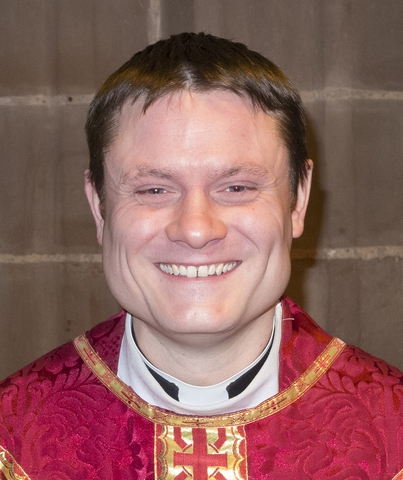
July and August News from the Clergy
24 Jun 2019 • From the Clergy
I am not what anyone would call a tranquil person. Sitting still is anathema to me, while my mind needs to be active constantly; my idea of light holiday reading is an 800-page history of the place I am visiting. Just occasionally, however, I can find myself at peace and – ironically for someone who thinks civilisation stops where the streetlights run out – it is most often when confronted with rural sunsets. I love the long evenings of summer, when the sun dips below the horizon in a blaze of orange and the light fades from the sky, as it ever so gradually turns a deeper and deeper blue. There is something magical about sunsets over oceans and lakes, being confronted with the beauty and enormity of the world, gazing out to a horizon beyond which so much lies. As night falls and the stars twinkle into life, I occasionally try to contemplate just how enormous and far away these tiny little lights are, but my brain cannot properly comprehend the huge distances involved in light years, to huge celestial objects far away across an enormous cosmos.
Contemplating this vastness of space and time, perhaps the words of Psalm 8 are especially pertinent:
When I look at your heavens, the work of your fingers, the moon and the stars that you have established; what are human beings that you are mindful of them, mortals that you care for them?
Given all we have discovered about space since that was written (and how much we know we don’t know), today humanity seems more insignificant than ever before. Half a century has passed since human beings set foot on the moon, but while that has remained the limit of human travel, spacecraft have been sent further and further across the solar system and beyond, scientific data from across the galaxies gathered and interpreted. We know that human beings are just one species on one planet in one galaxy of the universe, a minuscule speck on a vast canvas. Yet for all scientists have sought intelligent life on other planets, for all they have tried to identify other planets where life might be possible, and for all there is nothing inherently implausible in there being life elsewhere in the universe, the fact remains that as far as current knowledge shows, we are alone.
My own scientific interests were biology and chemistry of the terrestrial kind, so much of this is way beyond my comprehension. However, I do think there is something pretty amazing that just the right circumstances exist on earth to allow life on earth, circumstances which cannot even be found on our two nearest neighbours. Thus we have a beautiful planet on which we have come into being, but in Christian belief this is no accident. For us, the vastness of the cosmos derives (in ways we cannot begin to comprehend) from the will of a creator God, who in spite of this loves and cares for us, human beings, that almost invisible dot on the universal canvas. So great is that love, our faith tells us, that it did not even stop short of death. We may be confronted with our insignificance as we gaze out into the universe, but to the God who has entrusted this earth to us, we matter.
The tragedy is that as a species we have not repaid that trust, nor been wise stewards of creation. As the twenty-first century advances, we face a climate emergency. While I disagree with some of their methods, activist groups are rightly making us concentrate on the peril our planet is in. Many of these are the young people whose future is threatened. As Christians, we cannot ignore this. If we believe in God the creator, the God who has given us this fragile, beautiful world, then we must seek to be mindful of him as he is of us and value his creation. We must also be mindful of other human beings, echoing God’s love for all creation. This means we must investigate and embrace those initiatives – such as Fairtrade and Eco Churches – which can make a positive difference in this time of crisis. Do we value creation and ourselves as much as God does?
Phil